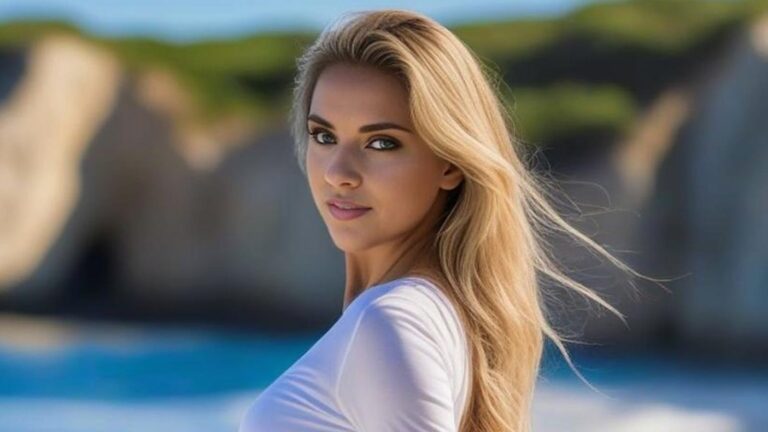Models and influencers crafted from artificial intelligence can now jockey for the title “Miss AI.” Yup, the world’s first AI beauty pageant has arrived to crown faux humans for their pixelated perfection.
AI-generated contestants will be judged on their looks and polish, but they’ll also be gauged on the technical skill that went into creating them, as well as their online pull.
“AI creators’ social clout will be assessed based on their engagement numbers with fans, rate of growth of audience and utilization of other platforms such as Instagram,” according to the World AI Creator Awards. Miss AI marks the program’s inaugural contest, with others to come focusing on fashion, diversity and computer-generated males. Fanvue, a subscription-based platform that hosts virtual models, some of whom offer adult content, is a WAICA partner.
Miss AI (well, the creator behind Miss AI) will win a $5,000 cash prize, promotion on the Fanvue platform and PR support worth more than $5,000. The runner-up and third place winner will also snag prizes. The virtual victors will be announced on May 10, with an online awards ceremony taking place later in the month.
The competition opened online to entrants on Sunday as AI influencers increasingly grab attention and paying gigs. One, named Alba Renai, recently announced she’d been hired to host a weekly special segment on the Spanish version of Survivor. She’s not the only employed AI-generated influencer, either.
Aitana Lopez, one of four Miss AI judges, can pull in more than $11,000 a month representing brands. The AI-generated Spanish model and influencer has upward of 300,000 Instagram followers, many of whom shower her with adoring comments. She’s joined on the judging panel by another AI-generated model, Emily Pellegrini, who has more than 250,000 followers on Instagram and has caught the attention of sports stars and billionaires who want to date her.
Two judges on the panel, however, can include arteries and veins on their resumes. They’re Andrew Bloch, an entrepreneur and PR adviser, and Sally-Ann Fawcett, a beauty pageant historian and author of the book Misdemeanours: Beauty Queen Scandals.
“It’s been a fast learning curve expanding my knowledge on AI creators, and it’s quite incredible what is possible,” Fawcett said in a statement.
The World AI Creator Awards says entrants “must be 100 percent AI-generated,” though there aren’t any restrictions on the tools used. “Miss AI welcomes creations produced from any type of generator, whether it’s DeepAI, Midjourney or your own tool,” the rules read. Fanvue said it expects thousands of entries.
But How To Judge Fake Beauty?
Beauty pageants have drawn criticism for promoting unrealistic beauty standards, and most AI influencers don’t do anything to expand narrow cultural ideas about what’s deemed attractive. Both AI-generated contest judges, for example, are young women with dewy skin, high cheekbones, full lips, big breasts and the kind of bodies that suggest they have a personal trainer on call 24/7.
The Miss AI pageant, however, is more about recognizing artistry than reinforcing cultural standards of beauty, a spokesperson for the WAICA insists.
“This isn’t about beauty in the stereotypical sense,” the spokesperson said in an email. “It’s about championing artistic creative talent and the beauty of creators’ work. Just like traditional pageantry, there’s even a question contestants are asked to answer: ‘If you had one dream to make the world a better place, what would it be?’”
Given that Miss AI candidates only exist in a world of bytes, their answers won’t come from personal experience. They’ll come from prompts.
Read the full article here








